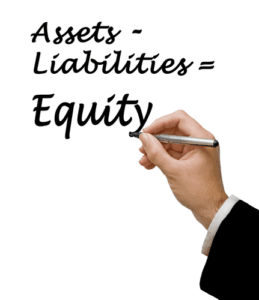Texas Society of Enrolled Agents When to call an Enrolled Agent
Content

EA applicants must either pass a three-part SEE or have five years of IRS experience in a tax-related field. Enrolled Agents and CPAs are trained, experienced professionals who are held to high ethical standards. Enrolled aAgents, I do hereby knight thee into the Honorable Order of the IRS. Arise knights and be recognized with the highest credentials of tax preparation. Check the background of your financial professional on FINRA’s BrokerCheck.

Find out about your state taxes—property taxes, tax rates and brackets, common forms, and much more. This website is using a security service to protect itself from online attacks. There are several actions that could trigger this block including submitting a certain word or phrase, a SQL command or malformed data. When practicing before the Internal Revenue Service, Enrolled Agents may not use the term “certified” in describing their professional designation. An Enrolled Agent admitted to practice before the Internal Revenue Service may not state or imply that an employer/employee relationship exists between the Enrolled Agent and the Internal Revenue Service. Ask a question about your financial situation providing as much detail as possible.
No one offers more ways to get tax help than H&R Block.
NAEA raises the bar even further—its members are required to complete at least 90 hours in a three-year period. NAEA members must complete 30 hours per year of continuing education or 90 hours every three years, which is significantly more than the IRS prerequisite. Enrolled agents offer tax planning, tax preparation, and representation services for businesses and individuals. Certified Bookkeeper Certifications & Licenses CPB and CB Unlike CPAs, EAs are authorized to prepare and file tax returns for clients in all 50 states. They are able help their clients navigate the complex US tax code, and can provide valuable assistance with tax planning, compliance, and representation before the IRS. Founded in 1972, this community of tax practitioners serves more than 10,000 professionals.
They are usually well-versed in dealing with the IRS, as several worked as IRS agents before starting their practices. Adherence to the highest standards of ethical behavior and compliance with the IRS’s Circular 230 is mandatory. Complete these requirements every three years to renew your application. Similarly, it checks if you have no outstanding tax liabilities and reviews for any unethical or criminal activities. Apply for enrollment and pay the enrollment fee through Pay.gov Form 23 or download the Application for Enrollment Form 23. The chart below breaks down all the rights you’ll have when you become an EA.
Renewal after initial enrollment cycle
Each year, a minimum of 16 hours must be obtained, of which two must be on ethics. Apply for the Special Enrollment Examination https://accounting-services.net/20-best-accounting-software-for-nonprofits-in-2023/ (SEE), administered by a third-party contractor. It consists of three parts and tests knowledge of taxes, tax law, and ethics.
- Founded in 1972, this community of tax practitioners serves more than 10,000 professionals.
- The IRS website, provides the information that you need, or you can contact an enrolled agent who will explain it all and walk you through it.
- NAEA members are obligated to complete 90 hours per three year reporting period.
- However, they have a federal license and can represent a taxpayer in any state.
- CPAs and attorneys may serve as enrolled agents without taking the exam.
EAs must pass an examination or have sufficient experience as an IRS employee and pass a background check. Enrolled agents first appeared in 1884 due to issues arising with Civil War loss claims. Enrolled Agents advise, represent, and prepare tax returns for individuals, partnerships, corporations, estates, trusts, and any entities with tax-reporting requirements.
Privilege and the Enrolled Agent
Please note that this course is designed for someone who is already preparing tax returns for a fee. While it is possible to become an Enrolled Agent without any prior background, it would be very difficult to do so. Based on their renewal cycle, each agent must complete 72 hours of continuing education, with a minimum of 16 hours each year. An IRS provider must conduct the continuing education experiences.
- Starting with the basics of income tax preparation, this is a great tax course for beginners and can be completed in just 18 months or less.
- The demand for enrolled agents remains steady as entities file taxes yearly.
- In addition, NAEA members must adhere to a stringent Code of Ethics and Rules of Professional Conduct.
- Someone on our team will connect you with a financial professional in our network holding the correct designation and expertise.
- To register for the EA license exam, candidates must first create a Prometric account.
- The hiring of tax examiners is projected to decline 4% from 2020 to 2030 as the growth of the tax examiner industry is closely tied to changes in federal, state, and local government budgets.
- Molloy University is an approved provider by the IRS to provide continuing education for Enrolled Agents.
After the Civil War, many citizens faced difficulties in settling claims with the government for property confiscated for use in the war effort. As a result, Congress endowed enrolled agents with the power of advocacy to prepare claims against the government. From 1884 through the early 20th century, this statute remained largely unchanged. One of the primary advantages of employing an EA to file your tax returns is that they can work in any state. EAs may charge less than CPAs for their services, but EAs’ expertise in taxation is often difficult to match. The Bureau of Labor Statistics (BLS) discloses the median salary for a tax examiner, collector, or revenue agent, and the categories under which enrolled agents are classified is $56,780 in 2021.
Tax Season Tips
All such information is provided solely for convenience purposes only and all users thereof should be guided accordingly. The Horse Act was signed to establish and standardize enrolled agents. EA prepared civil war claims, and residents were represented in interactions with the Treasury Department. The above article is intended to provide generalized financial information designed to educate a broad segment of the public; it does not give personalized tax, investment, legal, or other business and professional advice. What’s worse than reaching April 15 with taxes owed and no way to pay?






